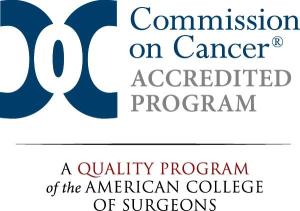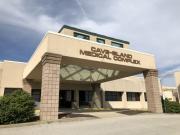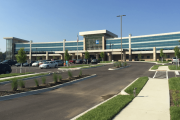Liver Cancer
When you or a loved one needs liver cancer treatment, you can count on our world-class team for the support you need every step of the way. As an accredited Comprehensive Community Cancer Program, we offer nearly all the same options and technology you’d find at an academic medical center, just close to home. From advanced, comprehensive treatments to compassionate care that’s centered on your unique condition, needs and goals, we’ll make sure you’re at the center of your care—and that you’re in the driver’s seat from diagnosis to recovery.

What is Liver Cancer?
The liver has several important jobs. It breaks down and stores nutrients from the intestine, makes most of the clotting factors that keep the body from bleeding too much when cut, delivers bile into the intestines to help absorb nutrients, and breaks down alcohol and other toxic wastes in the blood.
Liver cancer develops when cells in the liver, the body’s largest internal organ, begin to grow out of control. And although cancer often spreads to the liver from other parts of the body, only cancer that begins in the organ is called liver cancer (also known as primary liver cancer).
Liver Cancer Symptoms
In most cases of liver cancer, symptoms don’t show up until the disease has advanced.
Common symptoms of liver cancer include:
- Enlarged liver
- Enlarged spleen
- Loss of appetite
- Nausea or vomiting
- Pain in the stomach or near the right shoulder blade
- Unintentional weight loss
- Yellowing of the eyes and skin (jaundice)
Liver Cancer Risk Factors
A risk factor is something that increases your risk for developing a certain type of cancer. Some, like those related to genetics, you can’t change. But others, like risk factors related to lifestyle, you can.
Common risk factors for liver cancer include:
- Anabolic steroid use
- Certain rare diseases, including Tyrosinemia and Wilson disease
- Chronic infection with hepatitis B (HBV) or hepatitis C (HCV)
- Cirrhosis, which causes scar tissue to replace damaged liver cells
- Exposure to certain harmful chemicals, such as vinyl chloride and thorium dioxide
- Gender (affects men more than women)
- Heavy alcohol use
- Inherited metabolic diseases, such as hereditary hemochromatosis
- Obesity
- Type 2 diabetes
Liver Cancer Types
There are two main types of primary liver cancer in adults:
- Hepatocellular carcinoma, which is the most common form of liver cancer.
- Intrahepatic cholangiocarcinoma, which starts in the cells that line the bile ducts or in the tubes that carry bile to the gallbladder.
Diagnosing Liver Cancer
Sometimes, liver cancers are found through screening. We may recommend a screening test if you’re at high risk for this disease—for example, if you have cirrhosis. Screening tests for liver cancer typically include ultrasound and CT scans. We also may screen for the presence of a specific tumor marker, called alpha-fetoprotein (AFP), to detect liver cancer.
If screening tests indicate the presence of disease, or if you have symptoms of liver cancer, we’ll likely order diagnostic tests. These may include other imaging tests, like X-ray, MRI or angiography, which is an X-ray that looks at blood vessels and can be used to show the arteries that supply blood to a tumor in the liver. We’ll also order a biopsy.
Treating Liver Cancer
Your team may include medical, surgical and radiation oncologists, gastroenterologists and supportive care clinicians, such as dietitians, counselors and nurse practitioners.
In general, liver cancer treatment may include:
- Ablation may be used to destroy liver tumors without removing them. We may use this when tumors are small or when surgery isn’t an option, which sometimes happens when a patient isn’t in good health or has reduced liver function. We also may recommend ablation for patients who are waiting for a liver transplant.
- Chemotherapy to treat certain patients, including those whose cancer isn’t responding to other treatments.
- Embolization, a procedure that injects substances directly into an artery in the liver to block or reduce the flow of blood to a tumor. We may use this procedure when surgery is not an option for a particular patient.
- Immunotherapy to target checkpoints or proteins on immune cells that can be turned on or off to start an immune response.
- Radiation therapy to destroy cancer cells. It’s often recommended when tumors can’t be removed by surgery, we can’t use ablation or embolization, when the cancer didn’t respond well to those treatments, when cancer has spread to other parts of the body, or when patients have a collection of cancer cells (called a tumor thrombus) blocking the portal vein or to alleviate pain.
- Surgery to remove the tumor with surgery, often called resection.
- Targeted therapy, which involves using a kinase inhibitor to block proteins on or near the surface of a cell that help tumors grow.










































